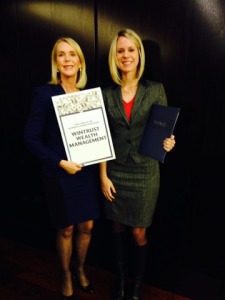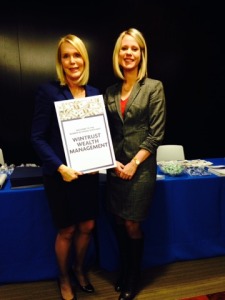Divorce may cause you to view your life and possessions through a fresh pair of eyes. Dividing marital assets becomes necessary in most divorce cases. This may cause you to feel depressed when faced with the possibility of selling the family home, dividing financial assets, or even parting with your prized espresso machine.
While your feelings are valid, it is important to remember that emotions often cloud the mind, and acting on your emotions can have negative and long-term effects. Remaining focused enables you to review all of your marital and non-marital assets objectively.
It is nearly impossible to compile a comprehensive list of assets in one sitting. For instance, have you considered calculating the value of your travel reward points, a small 401(k) plan from a previous employer, or even photographs or keepsakes? These items may seem to have little worth, but small assets add up. It is best that you are fully aware of all of your marital and non-marital property so you can retain the possessions you are entitled to at the conclusion of your divorce.
Some of the most obvious assets like real estate, retirement plans, investments, and/or bank accounts are likely to get a lot of attention when discussing your separation.
Not-so-obvious assets can be easily forgotten during divorce proceedings. Below is a list of six assets that are often overlooked.
-
Retirement Plans from Previous Employment:
Many times pension plans and defined contribution plans from prior employment, such as 401(k) plans, or profit sharing plans, acquired during the marriage are overlooked in divorce proceedings. All retirement plans acquired during the marriage are subject to division by the court. A detailed employment history and benefits for you and your spouse should be provided to your attorney especially if the former employer offered a retirement plan to the employees.
-
Memberships:
When you have a private club membership in an “equity” club, whether to a country club, golf club, or yacht/sailing club, you are entitled to part of the membership’s value. It does not matter whether or not you actively used the club membership during your marriage; it is a marital asset and should be considered. Given the exorbitant membership fees associated with private equity club memberships, this is something you don’t want to leave out of the list of marital assets.
-
Collectors’ Items:
A collection of vintage stamps, baseball cards, rare coins, or other collectables acquired during the marriage are considered assets of the marriage and should be appraised. It is easy to forget collectors’ items especially if you did not take interest in your spouse’s hobby. Similarly, any collectors’ edition item your spouse acquired during the marriage is also part of common property. When reviewing your marital assets, take into consideration items such as comic books, first edition books and records, sports memorabilia, and related items that are valuable now or may have value in the future. There are appraisers who can value these special items for you during your divorce proceedings.
-
Trademarks and Patents:
If your spouse has registered patents, trademarks, or received royalties, be sure to include them in your divorce settlement. Ideas and inventions are rarely successful overnight, so it is possible that this asset can be overlooked when creating your list of shared property. Additionally, there is a chance that the asset will become lucrative in the future. Be sure to include patents, trademarks, and royalties in your divorce settlement so that you can share in future benefits.
-
Money Due From Others:
Remember, your spouse’s debtors are your debtors too. In the upheaval of divorce, you may have forgotten that your spouse loaned money to a third party or business. But when the loan is repaid, you ought to receive a portion of the monies repaid. Make sure you don’t miss out on the repayment.
-
Non-Wage Employee Benefits:
Stock options, restricted stock units, defined benefits and other non-wage benefits provided to an employee from an employer are marital assets which should not be overlooked in a divorce proceeding. A thorough list of employee benefits should be provided to your attorney to be included in the property settlement agreement so that you receive a proportionate share of same when paid to your spouse.
These six assets can easily be overlooked during the emotional upheaval of divorce. Divorce is not easy. It is emotional, time consuming and, sometimes, a complex process. Nevertheless, it is imperative that you remain focused and level-headed when it comes to dividing your assets. Take care not to forget intangible assets and move forward in life without regrets. Contact
Margaret Bennett at Bennett Law Firm, LLC, today about the
not-so-obvious assets you should consider when pursuing a divorce.










